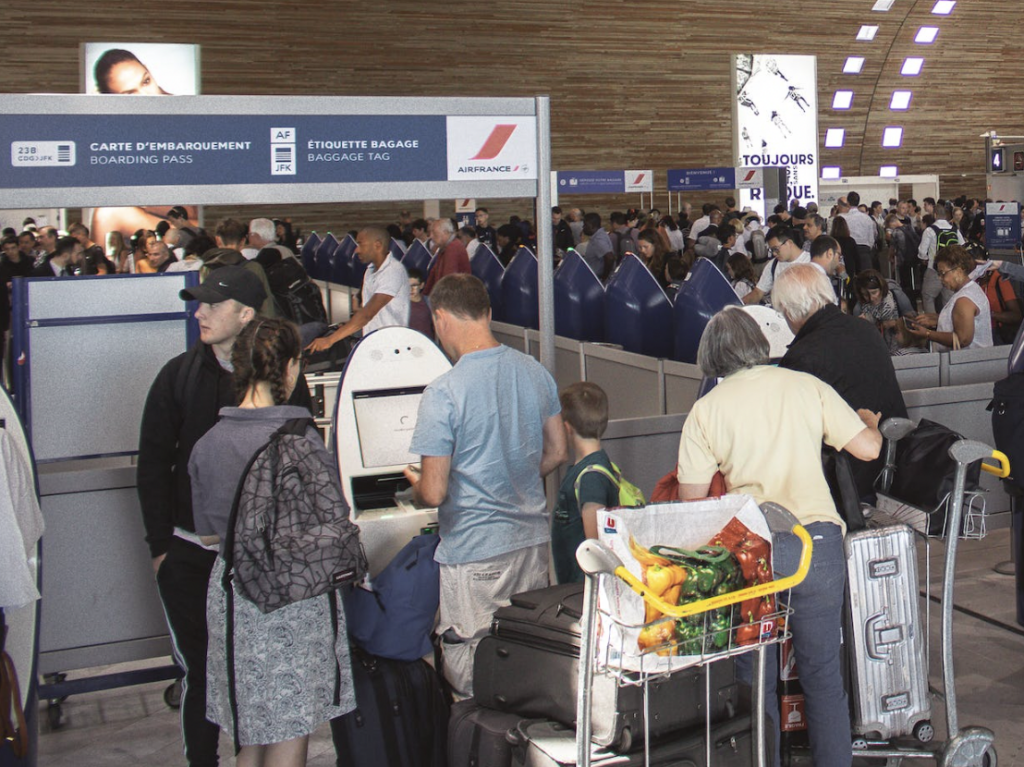Traveling with infants can be a stressful experience, especially when it comes to navigating airport security. The Transportation Security Administration (TSA) has specific rules in place for bringing baby food, breastmilk, and formula on a flight, and it’s important to familiarize yourself with these rules before your trip. In this blog post, we will take a closer look at the TSA’s rules for traveling with these items and offer some tips for making your security experience as smooth as possible.
Definition of Baby Food, Breastmilk, and Formula
Before we dive into the TSA’s rules, it’s important to clarify what is considered baby food, breastmilk, and formula.
- Baby food refers to any solid or liquid food that is specifically intended for infants and young children. This can include purees, pouches, snacks, and beverages.
- Breastmilk refers to the milk that is produced by a woman’s breasts to feed a baby.
- Formula refers to a manufactured food that is designed to replace breastmilk or to be used as a supplement to breastmilk.
TSA Rules for Baby Food, Breastmilk, and Formula
The TSA has specific rules in place for bringing baby food, breastmilk, and formula on a flight. Here is an overview of these rules:
- Baby food and formula are allowed in reasonable quantities in carry-on bags. This means that you can bring enough of these items to feed your child during the flight, as well as a small extra quantity in case of delays.
- Baby food and formula are exempt from the TSA’s 3-1-1 liquid rule, which limits the amount of liquids, gels, creams, and pastes that you can bring in your carry-on bag. This means that you can bring as much of these items as you need without having to place them in a quart-sized bag.
- Breastmilk is also allowed in reasonable quantities in carry-on bags. Like baby food and formula, it is exempt from the TSA’s 3-1-1 liquid rule.
- Frozen breastmilk is allowed in carry-on bags as long as it is completely frozen at the time of screening. If it is partially thawed or liquid, it will be subject to the TSA’s 3-1-1 liquid rule.
- Refrigerated breastmilk is allowed in carry-on bags as long as it is in a container that is small enough to fit in a quart-sized bag and it is kept cold until it is screened. If the container is too large or if the milk is not kept cold, it will be subject to the TSA’s 3-1-1 liquid rule.
- If you are traveling with a baby who is less than 14 days old, you are allowed to bring more than the usual amount of breastmilk in your carry-on bag. This is because newborns typically need to eat more frequently than older infants.
Tips for Going Through TSA with Baby Food, Breastmilk, and Formula
To make your security experience as smooth as possible, there are a few things you can do to prepare for your trip.
- Pack your baby food, breastmilk, and formula in a clear, quart-sized bag. This will make it easier for the TSA to see what is in your bag and to quickly determine if it is allowed.
- If you are bringing frozen breastmilk, make sure it is completely frozen at the time of screening. If it is partially thawed or liquid, it will be subject to the TSA search
- If you are bringing refrigerated breastmilk, make sure it is in a container that is small enough to fit in a quart-sized bag and keep it cold until it is screened. If the container is too large or if the milk is not kept cold, it will be subject to the TSA’s 3-1-1 liquid rule.
- Consider bringing a cooler or insulated bag to store your breastmilk during the flight. This will help keep it cold and prevent it from spoiling.
- If you are traveling with a baby who is less than 14 days old, be prepared to show proof of your child’s age at the security checkpoint. This can include a birth certificate, passport, or immunization records.
- If you are breastfeeding or pumping during the flight, be prepared to do so in public. Most airports have designated nursing rooms, but they may not be available at all times. If you are uncomfortable breastfeeding or pumping in public, you can bring a nursing cover or blanket to use as a shield.
- If you are formula-feeding, bring enough formula to last the entire flight. Delta offers a complimentary bottle-warming service on board, but it’s always best to be prepared in case this service is not available or if your flight is delayed.
- Consider bringing a few extra snacks and drinks for your child in case of delays. This can help prevent hunger and thirst, which can be especially frustrating for infants and young children.
- Be prepared for the possibility of your baby food, breastmilk, and formula being inspected by the TSA. The TSA may need to open your containers and test the contents to ensure that they are safe. This is a standard security procedure and is not intended to be intrusive or disrespectful.
- If you are unsure about any of the TSA’s rules or regulations, don’t hesitate to ask a TSA officer for clarification. The TSA has a dedicated team of officers who are trained to assist travelers with special needs, including families with infants and young children.
Overall, traveling with baby food, breastmilk, and formula can be a smooth and stress-free experience if you are familiar with the TSA’s rules and regulations. With a little planning and preparation, you can navigate the security checkpoint with ease and make your trip as enjoyable as possible for you and your little one.
